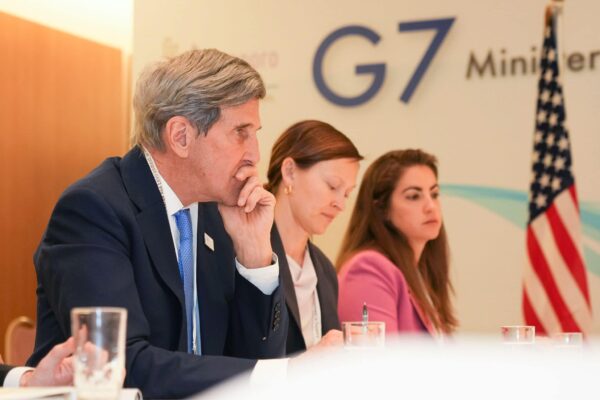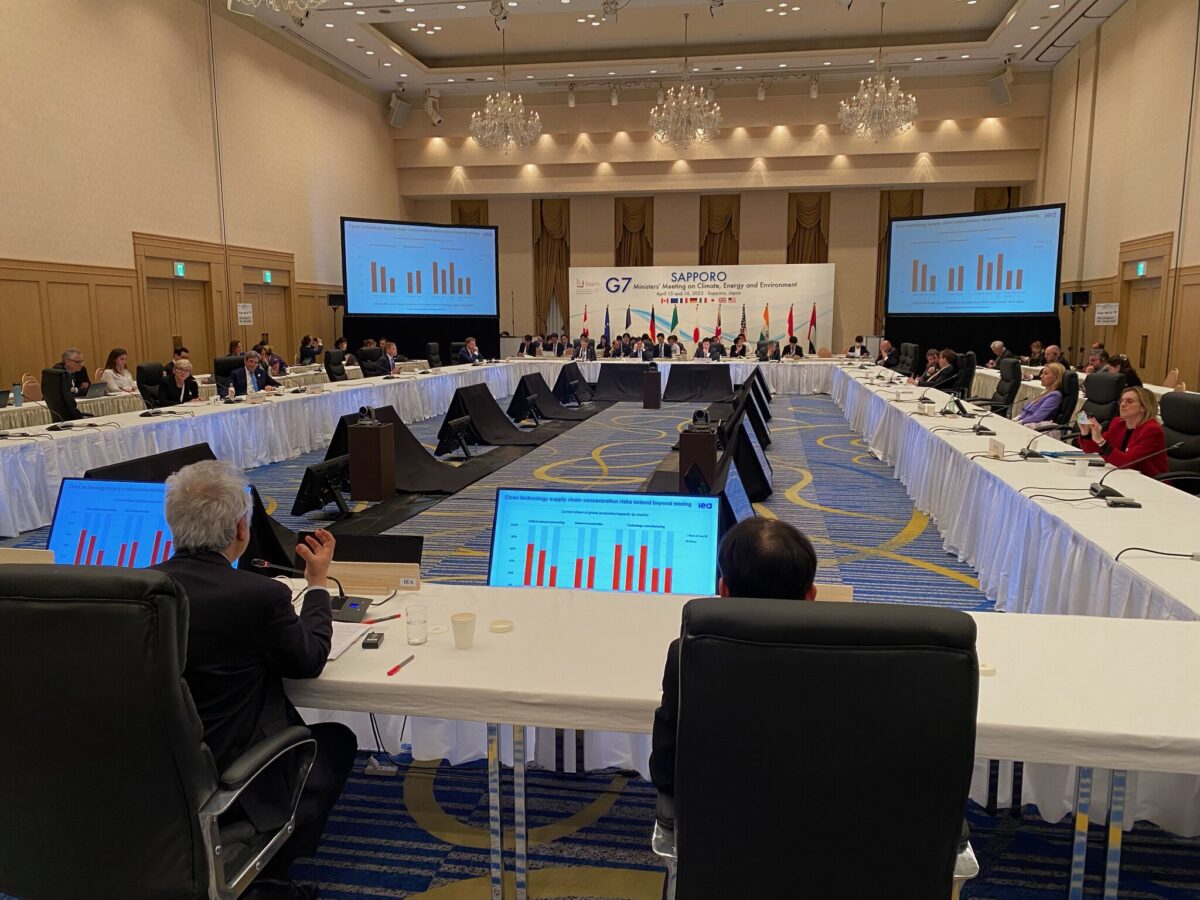Ministers from the Group of Seven (G7) member states, as well as representatives of the European Union, wrapped up a two-day meeting in Japan on Sunday with an agreement to ramp up the total amount of solar power generation to more than 1 TW by 2030 as part of plans to speed up the clean energy transition.
The members also pledged to increase offshore wind capacity by 150 GW before the end of the decade as part of an urgent need to accelerate the clean energy transition and transform the world’s energy systems in order to “achieve net zero in energy systems by 2050 at the latest.”
Officials from the G7 countries, which account for a quarter of carbon emissions, detailed their commitments in a 36-page communique issued after two days of talks held in the northern Japanese city of Sapporo.
“We will drastically increase electricity generated by renewable energies,” the members said.
“The G7 contributes to expanding renewable energy globally and bringing down costs by strengthening capacity including through a collective increase in offshore wind capacity of 150 GW by 2030 based on each country’s existing targets and a collective increase of solar to more than 1 TW by 2030.”
The members also vowed to promote improvement in innovative technologies, including perovskite solar cells and wave energy and in international standards of evaluation methods for introducing new technologies.
The G7 countries are Canada, France, Germany, Italy, Japan, the United Kingdom and the United States. The European Union (EU) is a “non-enumerated member”. The G7 account for a quarter of global carbon emissions and 40% of the world’s economic activity.
The members emphasised that an accelerated clean energy transition is key to improving security, stability and affordability of global energy supply and that there is “a real, urgent need to increase energy security and accelerate clean energy transitions” by diversifying supply, sources and routes.
“We reiterate the importance of significantly increasing the pace and scale of deployment of renewable energy in the decarbonization of our economies as effective means of enhancing our energy security through diversifying energy supply, reducing the dependency on fossil fuels, and achieving the goal of net zero by 2050 at the latest,” the document says.

Image: US Consulate
The new renewable energy targets outlined in the communique are backed by an agreement to accelerate the phase out of unabated fossil fuels – with a particular focus on coal.
The countries agreed to prioritise “concrete and timely steps” towards accelerating the elimination of “domestic, unabated coal power generation”, as a part of a commitment to achieve at least a “predominantly” decarbonised power sector by 2035.
“We call on and will work with other countries to end new unabated coal-fired power generation projects globally as soon as possible to accelerate the clean energy transition in a just manner,” the document says.
Speaking on the sidelines of the meetings, U.S. Presidential Envoy for Climate John Kerry said the event had been “really constructive.”
“I think the unity for the goal that was expressed of phasing out unabated fossil fuels is a very important statement,” he said.
This content is protected by copyright and may not be reused. If you want to cooperate with us and would like to reuse some of our content, please contact: editors@pv-magazine.com.









2 comments
By submitting this form you agree to pv magazine using your data for the purposes of publishing your comment.
Your personal data will only be disclosed or otherwise transmitted to third parties for the purposes of spam filtering or if this is necessary for technical maintenance of the website. Any other transfer to third parties will not take place unless this is justified on the basis of applicable data protection regulations or if pv magazine is legally obliged to do so.
You may revoke this consent at any time with effect for the future, in which case your personal data will be deleted immediately. Otherwise, your data will be deleted if pv magazine has processed your request or the purpose of data storage is fulfilled.
Further information on data privacy can be found in our Data Protection Policy.